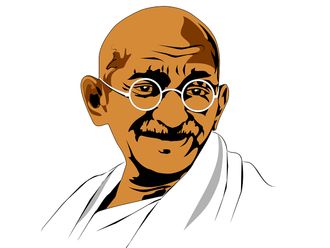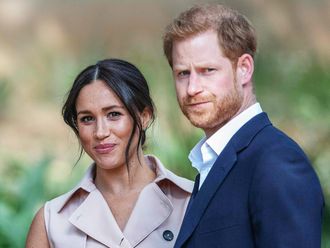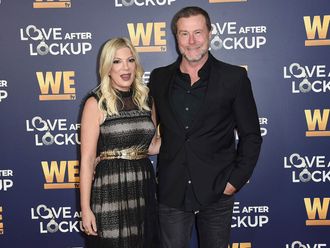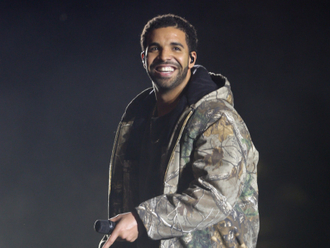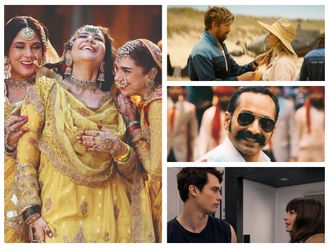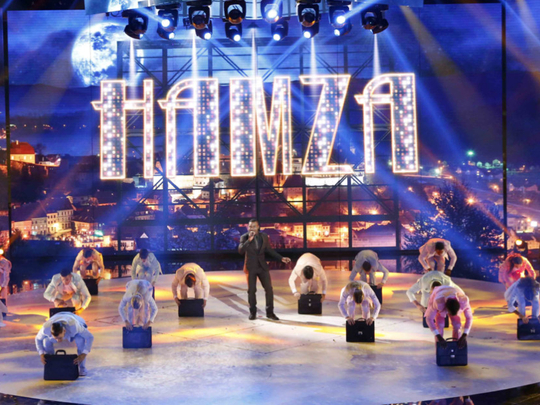
It’s been a long road to the end of X Factor Arabia, but fourth season-winner Hamza Hawsawi is in no mood to rest.
“I finally slept properly for the first time last night,” the 24 year old from Jeddah said on Tuesday, two days after he was declared the winner of the Middle East version of the singing reality show. “But I don’t want to rest now. I’ve come so far. I’ve got so much to do, so many things I want to achieve.”
Hawsawi’s win came as a surprise to many: He only sang in English throughout the show, which was mostly in Arabic. And he was up against social media sensations, The 5, already defined as the Middle East’s breakout boy band, with their good looks, perfect hair and pan-Arab flavour. The band, comprised of members from across the region, came second, while Hind Ziadi from Morocco came third.
But the Saudi Arabian singer says his entire life had prepared him for that winning moment on Saturday night.
“Throughout my life I was told so many times that I would never make it, that I will never get far. I am an Arab from Saudi Arabia who sings in English, so the odds were against me,” he says. “But I have always believed in following your dreams and working towards them no matter what.
“Someone told me I am the first Arab to win an Arab show despite singing in English. And someone else said I am the first Saudi ever to win a singing reality show. That’s why this win is a big deal on so many levels.”
Raised by a single mother who died of cancer when he was just 17, Hawsawi says he learnt very early in life to fend for himself. At 18, he started working in a clothes shop selling suits to pay for his university.
“I have an aunt who raised my mother who also took care of me after my mother passed away. But after I graduated, I moved out to live with my cousin and had take care of myself, pay rent, pay off loans,” he says.
Hawsawi was working at a bank in Jeddah as a facilities manager when he decided to audition for X Factor Arabia earlier this year.
“Of all the reality singing shows, I thought it was the fairest, and thought it gave equal opportunities to all contestants, whether you were a soloist or in a group or younger or older. Also there was line in the flyer that said ‘language doesn’t matter’. That convinced me that I might have shot in this,” he recalls.
Created by music mogul Simon Cowell, The X Factor sees aspiring singers split into various categories where each group is mentored by a celebrity judge. Selected contestants then move on to the live shows where viewers vote for their favourite performers. Contestants with the lowest votes then get eliminated each week. The X Factor now has many international versions, with the Arab shows owned by MBC.
Following auditions in Jeddah, Hawsawi soon landed in Beirut for the live shows. It was after five weeks, he says, that he began to think he might actually have a shot at winning. He then quit his job at the bank and decided to give it his all.
“I only took 15 days off from work. I thought I could get up to the live shows, get people to see what I was capable of and that was enough,” he recalls. “But as we progressed and the votes kept coming in, I really wanted it to make it to the end. There I was on that stage, on that show, with this amazing opportunity. I just wanted to give it everything I got. So after I quit my job, it was all or nothing.”
Known as the nice guy throughout the show, Hawsawi says he thinks audiences warmed up to him because he was genuine.
“I was myself. I wanted to keep it real, for the audience to hear my story, know the real person I was. I think they saw that,” he says. “I didn’t want to pretend to be someone else on the biggest chance I had on the biggest network in the region.”
Hawsawi, whose mother was an English teacher, says he began to sing in the language when he was very young.
“I was always drawn to American shows and music. We used to have a VCR [videocassette recorder] and I’d watch these American films, pause them and try to imitate them. I was very fascinated with the language,” he says, adding that he counts Michael Jackson as his hero.
“He was all I listened to. I always thought Michael was someone from space, from another world. He was capable of doing things that no humans can do. It was because of him I started dreaming of one day doing things like him on stage.”
Hawsawi performed two of Jackson’s songs during the live shows.
With his win, Hawsawi receives a cash prize of 100,000 Saudi Riyals (Dh97,944), a chance to meet X Factor creator Cowell himself, and a recording contract with Sony Middle East.
Although he wouldn’t mind a few “nice new suits”, his biggest prize, he says, is the love and support he received from viewers throughout the competition.
“All the money will go away, contracts will end, but you cannot buy love and loyalty from people. That will not end. And I am so grateful for the votes and the faith that people had in me to take me far,” he says.
“My mentor Ragheb [Alama, the singer and judge], he believed in me from the start. He always challenged me, made me want to do better. Even up to the last second of the show, he had faith in me. He’d say, ‘You are in competition with yourself now. I am proud of you’. That really boosted my self confidence.”
Already working on his debut album, Hawsawi says he wants it to be an experience. “I want to give people something they’ve never heard of. I want to write my own songs, talking about my life and I want people to relate, and know that it came from the heart,” he says. “And it will be a mix of Arabic and English.”
Credit for his success, he says, goes to his late mother.
“She always said I have a beautiful natural voice and encouraged me to sing. But I thought she was just saying that because she was my mother,” he says, smiling. “I want to encourage every one to follow their dreams and not to listen to people who put them down. You only live once. You’ve got to live it the way you want.”




